Vegetarian Humour – in 1852 & 1848 – Punch Magazine
Here we are being ‘ribbed’ by the magazine Punch, or the London Charivari – aeons ago!
The 1848 article is directly referring to Elizabeth & William Horsell’s projects – but does not mention them by name – they were vegans – more about them here if you Click – and also lower down this page.
The Victorian vegetarians / vegans & their humanitarian friends were generally quite a scholarly bunch. Many of their writings are ‘flavored’ with sections of Latin, Greek, French & German; their vocabulary was wide.
It is fun to read their writings, though much of it seems quite ‘quirky’ today.
They read Shelley with enthusiasm –
~ It is only by softening and disguising dead flesh by culinary preparation, that it is rendered susceptible of mastication or digestion; and that the sight of its bloody juices and raw horror does not excite intolerable loathing and disgust. ~ – from – ‘A Vindication of Natural Diet’ – 1813 – Percy Bysshe Shelley
…….but very, very few of them seem to have ever used Facebook or watched television!
The humour of Victorian vegetarianism / veganism was (& still is) also quite delicious!
………………………………………………………………………………………………………
1852
Scene setting
1850s London – a time before cars – bicycles were ‘high-wheelers’ or ‘penny-farthings – flight was possible only in hot air balloons – railways had not yet penetrated the City of London or the West End – most people would have moved about either on foot or in horse drawn carriages.
Rooms were lit by gas lamps or by oil lamps. In 1881 the Savoy Theatre in London was the first public building in the world, to be lit entirely by electricity.
………….the London vegans were already very active.
London’s first vegan residential community, ‘The Concordium’, ran from around 1838 to 1848. The Concordium’s goal was to produce – “integral men & women” – ……”whole men & women”.
In the late 1840s & the 1850s, vegan pioneers Elizabeth and William Horsell, actively leafleted London & farther afield, broadcasting the clear message that: –
~ ….it was not enough that one should give up the use of flesh, one should become a whole, and not a half person, and give up the use of tea, coffee, cheese, eggs, and milk. ~
‘Vegetarians’ in Britain were of two types in the 1840s & 1850s: –
1) In and around London there was a strong community of people who were eating only plants & who were engaged in campaigns promoting humanitarianism / promoting social welfare / opposing alcohol / opposing tobacco, etc.
2) With their headquarters in Manchester & Salford in Lancashire were the ‘Bible Christians‘. They did not eat flesh meat – but they were strong believers in ‘the land of milk & honey’. Most of them seem to have consumed dairy & eggs in huge quantities.
………………………………………………………………………………………………………
Grand Show of Prize Vegetarians – by John Leech
Punch magazine, London , 1852
This original cartoon is from an 1852 London magazine – Punch, or the London Charivari
Scroll down for a clickable large version.
It is in our Ernest Bell Library – we do not know in which month it was originally published.
Signed lower left corner.
John Leech (29 August 1817 – 29 October 1864 in London) was an English caricaturist and illustrator. Wiki.
John Leech was born in London. His father, a native of Ireland, was the landlord of the London Coffee House on Ludgate Hill, “a man”, on the testimony of those who knew him, “of fine culture, a profound Shakespearian, and a thorough gentleman.” His mother was descended from the family of Richard Bentley. It was from his father that Leech inherited his skill with the pencil, which he began to use at a very early age. When he was only three, he was discovered by John Flaxman, who was visiting, seated on his mother’s knee, drawing with much gravity. The sculptor admired his sketch, adding,
“Do not let him be cramped with lessons in drawing; let his genius follow its own bent; he will astonish the world”
—advice which was followed.
From the first Punch magazine in 1841 until his death in the 1864 John Leech’s cartoons were a major feature. Click here for an online archive already containing over 600 chosen cartoons of his from Punch over the period.
………………………………………………………………………………………………………
Click on the image below – to see a larger scan of the cartoon.
John Leech was ‘one smart cookie’ – we had fun focusing of the various elements of the cartoon.
Aldermen = (in England) one of the members, chosen by the elected councilors, in a borough or county council.
Fed on ‘early green peas’ – but with the ‘s’ reversed. Perhaps because many of the aldermen were not so well educated. The ‘p’ is correctly written! – referring to an old English saying – “Mind your P’s and your Q’s” – the origin of which is very much disputed.
Farinaceous = consisting of or containing starch. Mid 17th century: from late Latin farinaceus, coming from farina. Farina = flour or meal made of cereal grains, nuts, or starchy roots.
The 1845 book – Fruits and Farinacea – The Proper Food of Man by John Smith – focused very much on grains / starch. Read the 1854 US version – here. Regrettably John Smith was a big promoter of eggs & dairy.
Fed – ……’On Potatoes Only’ – a very sad word association. Beginning in 1845 and lasting for six years, the potato famine killed over a million men, women and children in Ireland and caused another million to flee the country. More.
The Irish potato famine had drawn American vegan Asenath Nicholson from New York to Ireland. Asenath had also spent time in Britain in this period.
Hardbake = probably referring to a pie – heavy with sugar – as British gooseberries are naturally very sour.
Radishes had been cultivated by French noblemen prior to the French Revolution of 1789 – 99 & many ‘posh’ hybrids had been created.
~ The radish found its way to England in the mid 16th century and into Shakespeare’s Henry IV shortly after –
“I do remember him at Clement’s-inn, like a man made after supper of a cheese-paring: when he was naked, he was, for all the world, like a forked radish, with a head fantastically carved upon it with a knife.” – Falstaff
(King Henry IV. Part II. Act iii. Sc. 2.) ~ – Source.
1861 saw the publication of Mrs Beeton’s “Book of Household Management” arguably the most famous cookery writer in British history. she writes three pages on carrots and carrot recipes, how to boil, dress, stew and slice carrots. she describes their origin, the constituent parts of carrots and advice on how to collect seeds. She said “Several species of carrots are cultivated,—the red, the yellow, and the orange. Those known as the Crecy carrots are considered the best, and are very sweet……”. http://www.carrotmuseum.co.uk/
Tom-Noddian = from Tomnoddy – Tom (nickname for Thomas) + noddy, meaning fool or dunce.
Why Class IV (4)? – perhaps because of the Latin name – ‘Beta vulgaris’.
Vulgar = lacking sophistication or good taste.
To be a ‘Fourth Class Person’ or ‘Fourth Class Fellow’ is still a very derogatory term.
A cute little garlic – simply labeled – ‘Sold’.
Garlic was rare in traditional English cuisine (though it is said to have been grown in England before 1548) and has been a much more common ingredient in Mediterranean Europe.
………………………………………………………………………………………………………
Are you feeling hungry?
London had ‘0’ vegetarian restaurants in 1852 – the first ones opened in the 1870s.
There are 310 London restaurant & shop & listings on HappyCow today.
It was quite a few years ago that we had to split London into 7 areas.
………………………………………………………………………………………………………
1848
Punch magazine, London , 1848, Vol XIV, p.182
THE VEGETARIAN MOVEMENT
When we noticed, a week or two ago, a banquet of vegetables, we were not aware that a great Vegetarian Movement was going on, with a vegetarian press, a vegetarian society, a vegetarian boarding-house, a vegetarian school, two or three vegetarian hotels, a vegetarian Life Insurance Office, vegetarian letter-paper, vegetarian pens, vegetarian wafers, and vegetarian envelopes.
The ‘Vegetarian Advocate’ has replied to our article on the late vegetarian banquet, and we must confess that, notwithstanding the very cholera-inducing diet on which the members of the sect exist, the answer is by no means of a choleric character. The ‘Vegetarian Advocate’ has a delicious vegetable leader, with two or three columns of provincial intelligence, showing the spread of vegetarian principles. There are vegetarian missionaries going about the country inculcating the doctrine of peas and potatoes; and there is a talk of a vegetarian dining-room, where there is to be nothing to eat but potatoes, plain and mashed, with puddings and pies in all their tempting variety.
We understand a prize is to be given for the quickest demolition of the largest quantity of turnips; and a silver medal will be awarded to the vegetarian who will dispose of one hundred heads of celery with the utmost celerity. We sincerely hope the puddings will not get into the heads of our vegetarian friends, and render them pudding-headed; but they are evidently in earnest; and, if we are disposed to laugh at them for their excessive indulgence in rice, we suspect that,
Risum teneatis, amici,
will be the only reply they will make to us.
Risum teneatis, amici = Can you help laughing, friends?
………………………………………………………………………………………………………
Notes
1) Risum teneatis, amici = Can you help laughing, friends? – an ironic or rueful commentary, appended following a fanciful or unbelievable tale.
2) Cartoonist unknown.
3) You can see the original article – in Section 31 – here.
4) The Vegetarian Advocate was the Horsells’ magazine – Elizabeth & William Horsell were vegans – click – to read much more about them.
………………………………………………………………………………………………………
Our Projects
The Henry Salt Archive is one of our, almost completed, projects.
The Humanitarian League is our Hong Kong registered charity.
The Ernest Bell Library was conceived in 1934. It is still strong & very active eighty years later – its primary objectives are to: –
Collect all of Ernest Bell’s book & non-book works and make them easily accessible to everyone.
Collect the literature of vegetarianism and all the other humanitarian movements in which Ernest Bell was so deeply involved.
Assist students and scholars in their research.
Introduce all aspects of Ernest Bell’s life, including his writings, campaign work, influences and his circle of friends.
Undertake our own research into missing aspects of Ernest Bell’s life and work.
We already have more than 300 pieces of Ernest Bell’s own writings.
We are also actively building a collection of examples of promotional material, campaign material, fundraising & marketing activities etc. – related to: –
veg(etari)an products.
veg(etari)an books & other publications.
veg(etari)an organisations.
veg(etari)an businesses.
animal rights organisations.
animal rights publications.
humanitarian organisations.
humanitarian publications.
rambling clubs run by members of the above groups & related publications.
the work of Richard St. Barbe Baker & the ‘Men of the Trees’ organization & its many sub-branches.
There are currently more than 2,000 items in the Ernest Bell Library.
We will complete the cataloging of the collection as & when adequate funds are available.
It is long past time for the library to go online!
“I have little doubt that the proposal for the establishment of an Ernest Bell Library, which would specialize in humanitarian and progressive literature, and so form a sort of centre for students, will meet with a wide response.”
Henry S. Salt – writing in September 1934
………………………………………………………………………………………………………
If anyone would like more information, please send an email to: –
humanitarianleague (at) outlook (dot) com
– or message me through HappyCow –
https://www.happycow.net/blog/author/JohnnySensible/
………………………………………………………………………………………………………If you are a Tweeter, please consider sending this post out to your friends.
Thank you!
………………………………………………………………………………………………………
Question from a reader – Why are there sometimes more than 25 hyperlinks in your blog posts?
Answer – We like to give folk the option of going a tad deeper into the subjects discussed. We also really like English!
tad = a small amount of something. Origin – late 19th century (denoting a small child): origin uncertain, perhaps from tadpole.
Mae West’s credo: “Too much of a good thing is wonderful!
credo – noun – an idea or set of beliefs that guides the actions of a person or group.



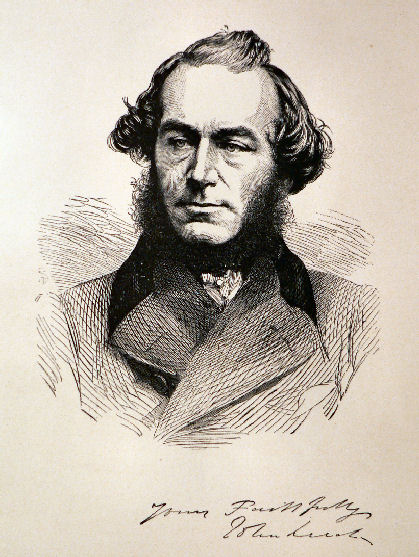












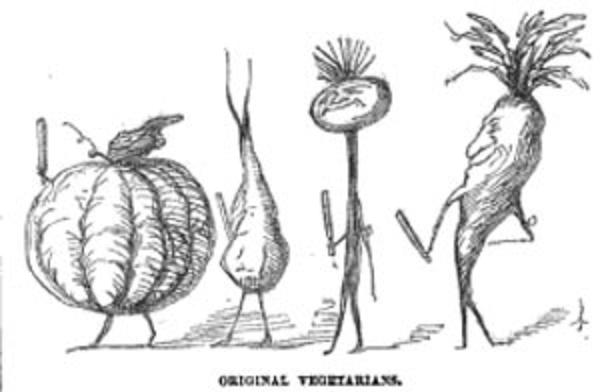

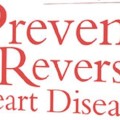
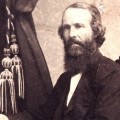
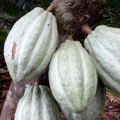
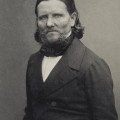
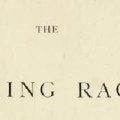
No Comments